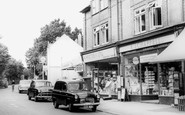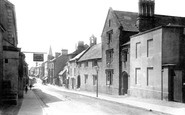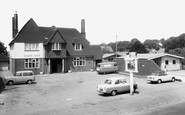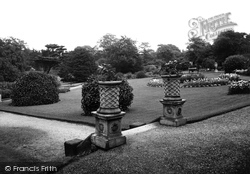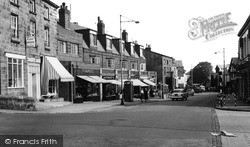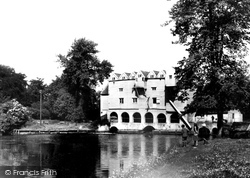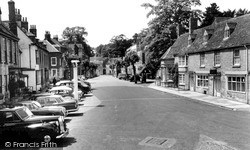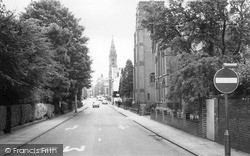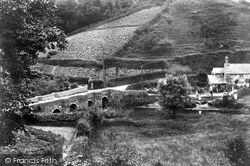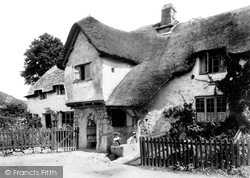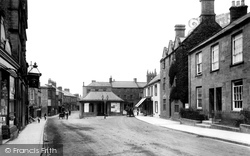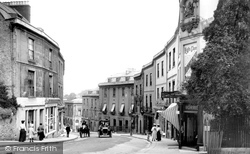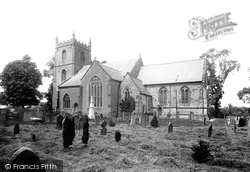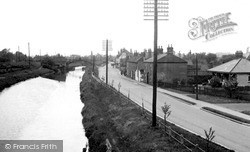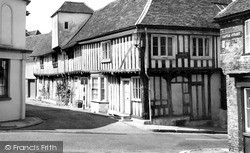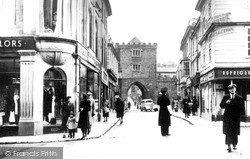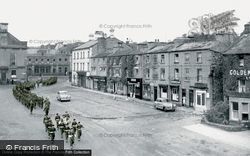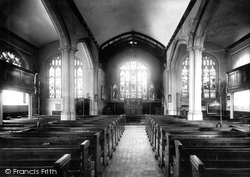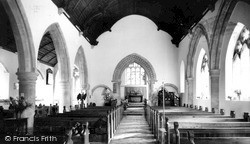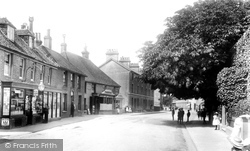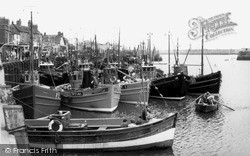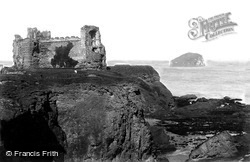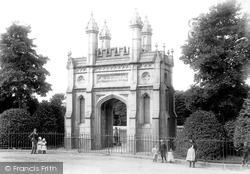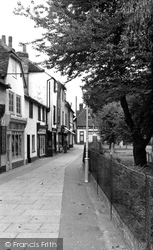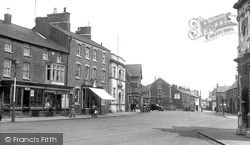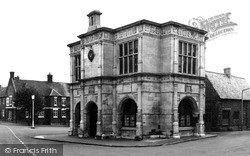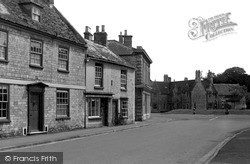Places
Sorry, no places were found that related to your search.
Photos
5 photos found. Showing results 801 to 5.
Maps
83 maps found.
Books
Sorry, no books were found that related to your search.
Memories
1,127 memories found. Showing results 401 to 410.
Memories Of Parsons/ Blackdown/Deepcut/ And Chilwell Barracks
I was stationed at Parsons barracks for two weeks before we moved to Blackdown camp for basic training. I did a course on office work and did touch typing which lasted for ten weeks. ...Read more
A memory of Deepcut in 1952 by
Memories Of Ottershaw
My family came to live in Ottershaw in 1952 when I was 5 years old. My father, Charles Coulson, had moved us from the North of England owing to lack of work since his de-mob from the RAF. He was employed as a ...Read more
A memory of Ottershaw in 1952 by
Garden Farm, Waterhouse Lane
We lived at Garden Farm, Waterhouse Lane, Kingswood, these are some of my memories. I went from there to Tadworth School, also myself and family used to walk from there most Sundays along different paths to Reigate ...Read more
A memory of Kingswood in 1952 by
Earlswood Lakes
My Sunday School first took us all to Earlswood Lakes in 1949. I loved it there but it was way too cold to swim. We went again in 1952 and took a boat out on the lake, it was so cold but so much fun, my poor mother froze, and said ...Read more
A memory of Ashtead in 1952 by
Visits To My Uncle At Robertsbridge
As a small child I would travel down by train with my nan and stay at my Uncle George Bowen who lived in Langham Road, Most important thing before boarding the train in London was to get in the right ...Read more
A memory of Robertsbridge in 1952 by
Kingsbridge Grammar School
I attended KGS from 1952 - 1959. The Old Grammar School seen in this picture had long been replaced by a much larger building in Westville, Kingsbridge. For the first couple of terms, I remember walking in file from ...Read more
A memory of Kingsbridge in 1952 by
Holidays In Gorton
I am Kenneth Overend Edwards from LLandudno, north Wales, and my story about Gorton is surprising because from an early age I was sent by my mother Ellen Edwards (nee Overend) to stay with my grandad, Eric Theodore Overend, who ...Read more
A memory of Gorton in 1952 by
Wonderful Memories
I do remember the Grand and the Memorial cinema's where we had so much fun growing up.Watching wonderful movies sitting in the back row of the Grand and dancing and jiving to Terry Allens full band on Saturday night at ...Read more
A memory of Newbridge on Usk in 1952 by
Waterlooville
My name at the time was John Hancock and I lived in Stakes Hill Road, Waterlooville, Hampshire before Philip Road was built. With fields opposite my home and the Convent Church along the way, it was so idyllic. The horse and cart ...Read more
A memory of Cowplain in 1952 by
My School Years
I started at Eighton Banks Primary School in 1952 aged five, having been moved from the slum clearance of the Teams, Ghd. To be in open countryside after the lung-choking life of the industrial Teams was absolute heaven. The ...Read more
A memory of Eighton Banks in 1952 by
Captions
1,233 captions found. Showing results 961 to 984.
The trees are also much taller today, creating a mature-looking landscape.
Traffic lights now stand on this corner, which is much busier today than in the relatively quiet days of motoring.
The mill was destroyed by fire in 1963: only the millpond and a few brick arches now survive.
The house to the right of the arched entrance at the far end of the street is where the poet Chaucer once lived.
When we compare this picture with 84689 (pages 43-44), it is interesting to see just how much the trees had grown in the thirty years that had passed between.
First recorded in 1478, its granite arches were widened on the far, downstream, side in 1874.
Its walls are hidden beneath some rather tatty rendering, but are almost certainly made of granite, which can be seen in the arch below the gable, and in the horse trough in which the little boy is standing
The Post Office c1960 Buckland St Mary Post Office is still a post office, but one wonders for how much longer.
Much grander is Bath Street. Its name is appropriate, as its architecture is perhaps reminiscent of some of the later 18th-century parts of Bath itself.
Much of this interesting cross church dates back to the 13th century. A monastery which stood here in the 9th century was given to the Church of Worcester.
The arch is that to the 1911 pipe bridge that carries Lincoln’s water from Nottinghamshire. The present footbridge is a Victorian one placed here in 1987.
The building has a great number of vertical beams not much more than a hand's span apart.
The earlier picture shows little traffic bar the donkey cart, but the advent of the car meant that by 1949 a traffic warden was needed to control traffic through the arch.
There was not much of an audience to watch the troops as they marched past the Black Swan Hotel in the centre of the picture, although there were a few curious bystanders.
The four-centred arches cover a short chancel. The stained glass in the east window is by Wailes, 1849. The north aisle's north-east window is by Kempe, 1900.
The chancel arch is Norman, with scalloped zigzags. The north and south arcades have four bays and three bays respectively.
Much of its wealth and subsequent Victorian building was a result of prosperity based on rope, sacking and string making. The 20th century has added modern shopping centres and a leisure complex.
By this time the humble fishing cobles had developed into a sizeable fishing fleet of much larger boats, which meant that they could travel further afield for their catch.
Tantallon was the stronghold of the Douglases, wardens of the Border Marches, lords of Galloway, and by the end of the 15th century masters of much of Lothian, Stirlingshire and Clydesdale.
The inscription above the arch proclaims: 'To the Memory of Humphry Millett Grylls'. It was erected to this local worthy in 1834, and paid for by public subscription.
The view looking north in the Churchyard in the mid 1950s was much the same then as it is today. In 1963, a well was found in the premises fac- ing us, then Wendy's Hat Shop.
Work on the building was finished by J A Gotch, a Northamptonshire architect, who roofed it and filled in the arches.
Originally with its ground floor open behind the arches, it was left unfinished, amazingly, for over three centuries, and finally completed in 1895.
This is the A15 road coming in from Bourne, which makes the traffic island a very busy place - it is now much smaller than it is in the picture.
Places (0)
Photos (5)
Memories (1127)
Books (0)
Maps (83)

